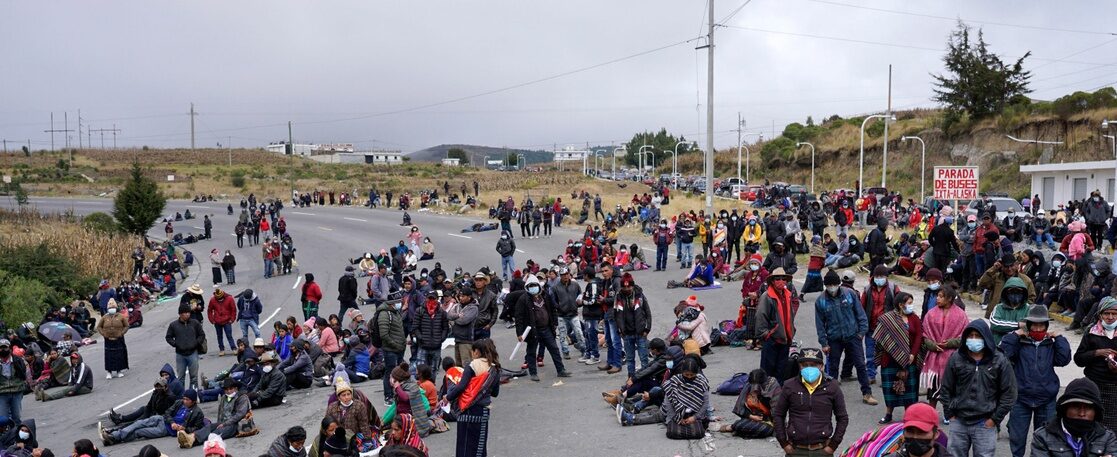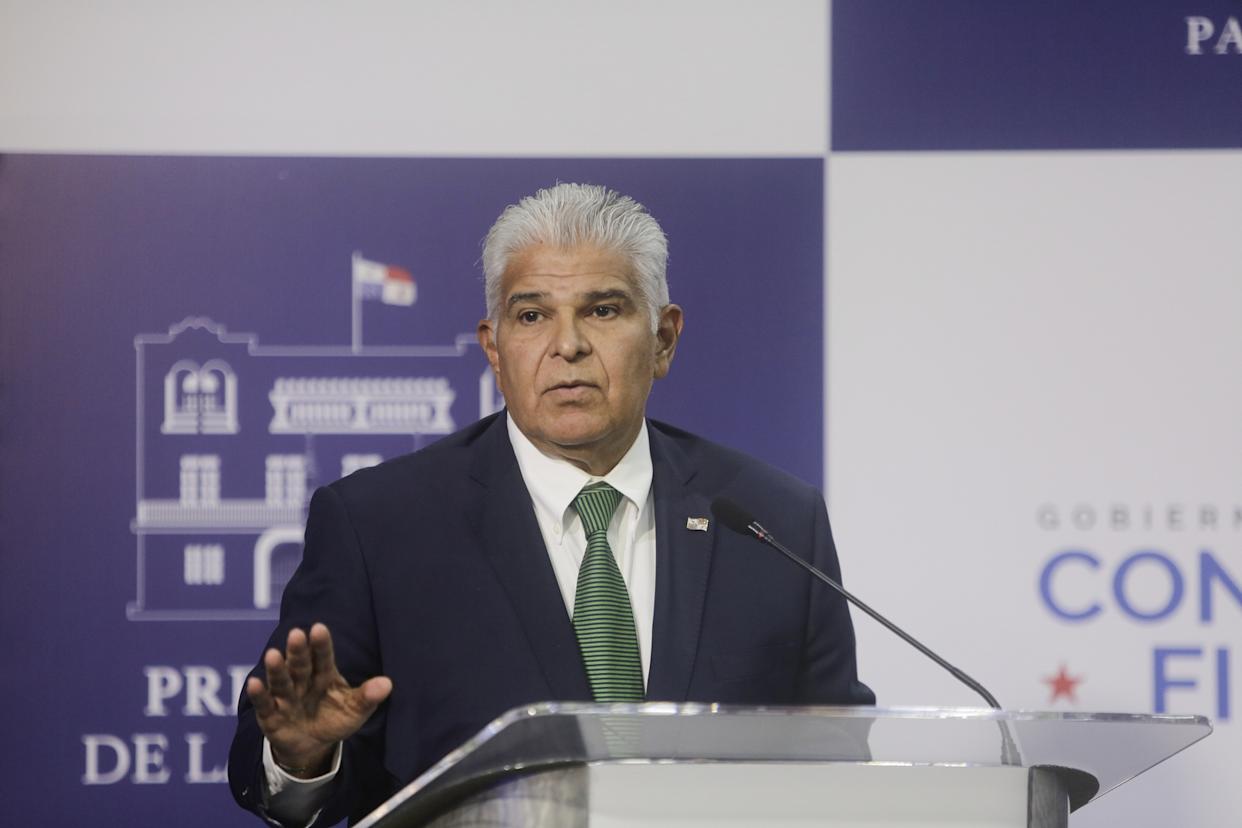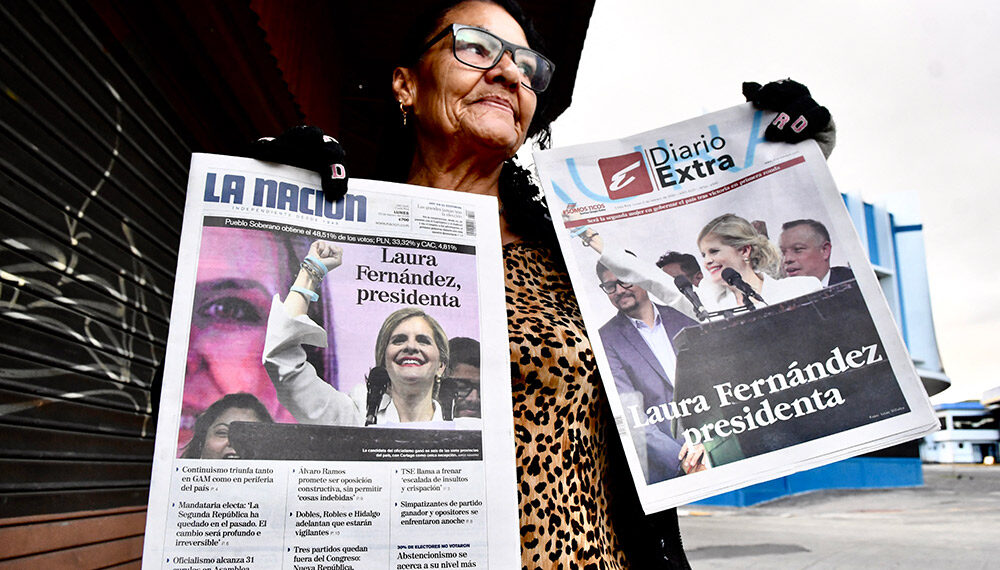Central America
Talks planned to end 100-year Guatemala indigenous dispute

AFP
Hundreds of indigenous people lifted their blockage of a major road in Guatemala on Tuesday after an agreement was reached for talks to resolve a bloody century-old land dispute.
On Monday, members of the Mayan K’iche group had blocked the Interamericana highway with the caskets of 11 of the 13 victims of a weekend massacre in which four children aged between five and 16 were alleged killed with machetes.
The roadblock was lifted after an agreement among residents who had traveled to Guatemala City to meet government officials to try to start talks over a legal border between two rival communities.
“A dialogue will begin in the first half of January, where the issue of the border will be discussed,” said Mateo Tzep, 42, a community leader from Santa Catarina Ixtahuacan municipality that is in conflict with the neighboring Nahuala.
Although both communities are K’iche, they have been fighting over land — at times violently — for more than 100 years.
On Friday night, armed men with “high caliber” weapons ambushed a group of people from Santa Catarina Ixtahuacan who went to the village of Chiquix in Nahuala to pick corn.
The children were cut into pieces and the victims were then burnt inside the truck they were traveling in. A police vehicle was also attacked, leaving one officer dead and two injured.
The Santa Catarina Ixtahuacan community claims those in Nahuala have stolen some of their land.
On Monday, President Alejandro Giammattei declared a month-long state of siege in the two communities, which means demonstrations and the right to carry weapons are banned.
“These events are no longer the product of an ancestral land conflict. They are the direct consequence of an illegal armed and organized group that acted against civilians and security forces through an ambush,” said Giammattei.
He vowed to bring the perpetrators to justice.
Three men carrying M16 rifles were arrested on Sunday. Authorities said they would carry out forensic tests on the weapons to see if they were used in the massacre.
Protesters had blocked the Interamaericana — one of Guatemala’s main highways, which links the capital to the west — with tires, tree trunks, rocks and concrete blocks.
“We don’t want any more deaths, we don’t want any more violence. We are looking for peace and justice,” said a man at the roadblock who identified himself only as Diego.
Indigenous people, many living in poverty, make up more than 40 percent of Guatemala’s almost 17 million population, according to official statistics.
Central America
Panama Will Not Be Threatened, President Says Amid Rising Tensions With China

Panamanian President José Raúl Mulino warned on Thursday that his country “will not allow itself to be threatened,” while expressing hope that tensions with China will ease following the cancellation of a contract allowing a Hong Kong-based company to operate ports along the Panama Canal.
Earlier this week, China, through its Hong Kong and Macao Affairs Office, said Panama would pay “a high price” for annulling the concession that has allowed a subsidiary of CK Hutchison Holdings to manage two ports on the interoceanic waterway since 1997.
The decision has angered Beijing, which, according to Bloomberg, has urged its state-owned companies to suspend negotiations on new projects with the Central American country.
“Panama is a dignified country and will not allow itself to be threatened by any nation on Earth,” Mulino said during a press conference when asked about China’s warnings.
However, the president added that he hopes the situation will not escalate. “I hope this does not spiral further; there is no reason for it to do so,” he said.
The ruling by Panama’s Supreme Court came amid pressure from U.S. President Donald Trump, who has threatened to reclaim the Panama Canal—built by the United States—arguing that it is “under Beijing’s control.”
China’s Foreign Ministry spokesperson Lin Jian warned on Wednesday that Beijing “will firmly defend the legitimate and lawful rights and interests of Chinese companies.”
Central America
Bukele’s Approval Rating Climbs to 91.9% in El Salvador, Survey Shows

Approval of Salvadoran President Nayib Bukele reached 91.9% at the end of 2025, up from 85.2% recorded in midyear, according to a survey conducted by the research unit of La Prensa Gráfica (LPG Datos) and published on Thursday.
According to the newspaper, the high approval rating is “mainly driven by improvements in security.” Of those surveyed, 62.8% said they “strongly approve” of Bukele’s performance, while 29.1% said they “somewhat approve.”
The main reasons cited for approving the president were the perception that security in the country has improved (33%), followed by the belief that the government has delivered changes and overall improvements (14.3%), and the view that Bukele has done a good job in general (11%), the report said.
Meanwhile, 5.9% of respondents said they disapprove of Bukele’s administration. Among them, 25.4% said that improvements have been limited solely to security, 5.6% cited a lack of transparency, and 2.8% pointed to arbitrary detentions.
“The approval of President Nayib Bukele stands at one of the highest levels since the start of his administration,” La Prensa Gráfica noted. According to the survey’s historical data, Bukele’s peak popularity was recorded in 2020 during the COVID-19 pandemic, when his annual average approval reached 92.5%, a figure even higher than that seen during the state of emergency.
Regarding campaign promises, 64.2% of Salvadorans believe that Bukele “is fulfilling the promises he made,” while 22.9% say he has “partially fulfilled” them, and 6.6% say he has “not fulfilled his commitments.”
When asked about the main “failure” of the president’s administration, 37% said there were none, while 10% pointed to the economy.
Central America
Laura Fernández Says She Will ‘Never’ Allow Authoritarianism in Costa Rica

Costa Rica’s president-elect, right-wing leader Laura Fernández, said she will “never” allow authoritarianism under her government, in her first speech after winning Sunday’s presidential election.
Fernández, the political heir of outgoing President Rodrigo Chaves, has been accused by her opponents of seeking to steer the country toward authoritarian rule through her hardline proposals against drug trafficking and plans to reform state institutions.
“I, as the new president of the Republic, will never allow authoritarianism or arbitrariness—things that no one wants in Costa Rica,” Fernández said to cheers from her supporters gathered at a hotel in the capital.
The 39-year-old political scientist criticized her rivals for centering their campaign on what she described as a narrative of “authoritarianism and dictatorship.”
“They tried to scare voters, but the electorate did not fall into the trap,” she said.
Without offering details, Fernández acknowledged that her administration will seek to change the country’s “political rules of the game,” in what she described as a necessary step for Costa Rica, one of Latin America’s most stable democracies.
-

 International2 days ago
International2 days agoEpstein Denies Being ‘the Devil’ in Newly Released Video Interview
-

 International2 days ago
International2 days agoSpain Seeks to Ban Social Media Access for Children Under 16
-

 International2 days ago
International2 days agoMexico to Send Humanitarian Aid to Cuba Amid U.S. Threats Over Oil Shipments
-

 International2 days ago
International2 days agoPetro Resumes Extraditions, Sends Top Criminal to U.S. Before White House Talks
-

 International2 days ago
International2 days agoHypothermia Linked to Most Deaths During New York’s Recent Cold Spell
-

 International2 days ago
International2 days agoMexico Arrests Suspect in Shooting of Sinaloa Lawmakers
-

 International1 day ago
International1 day agoDelcy Rodríguez Takes Control of Chavismo as Venezuela Enters a U.S.-Supervised Transition
-

 Central America4 days ago
Central America4 days agoCosta Rica Goes to the Polls as Voters Choose Continuity or Change
-

 International1 day ago
International1 day agoHRW Warns Trump’s Influence Has Weakened Human Rights in Latin America
-

 Central America2 days ago
Central America2 days agoLaura Fernández Says She Will ‘Never’ Allow Authoritarianism in Costa Rica
-

 International2 days ago
International2 days agoNFL Investigating Emails Linking Giants Executive to Jeffrey Epstein
-

 International5 hours ago
International5 hours agoVenezuela Debates Broad Amnesty Law Covering 27 Years of Chavismo
-

 International5 hours ago
International5 hours agoDíaz-Canel Calls for Talks With Washington Without Pressure as U.S. Tightens Oil Sanctions
-

 Central America5 hours ago
Central America5 hours agoPanama Will Not Be Threatened, President Says Amid Rising Tensions With China
-

 Central America5 hours ago
Central America5 hours agoBukele’s Approval Rating Climbs to 91.9% in El Salvador, Survey Shows


























